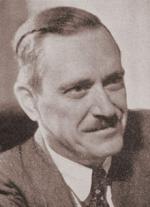Disable ads!
Earl Browder
Part of a series on Socialism in the United States History Utopian socialism New Harmony Brook Farm Oneida Community Icarians Bishop Hill Commune Looking Backward Progressive Era St. Louis Commune 1912 Lawrence Textile Strike Labor unionisation Women's suffrage Haymarket massacre May Day Repression and persecution Espionage Act of 1917 First Red Scare American Defense Society American Protective League Seattle General Strike The Communist Party USA and African Americans Communists in the United States Labor Movement (1919–37) Communists in the United States Labor Movement (1937–50) McCarthyism Smith Act / Smith Act trials John Birch Society Civil Rights / Anti-imperialism New Left War on Poverty Great Society Poor People's Campaign COINTELPRO Parties and organizations Active Committees of Correspondence for Democracy and Socialism Communist Party Democratic Socialists of America Freedom Road Socialist Organization Freedom Socialist Party Industrial Workers of the World International Socialist Organization Party for Socialism and Liberation Peace and Freedom Party Progressive Labor Party Revolutionary Communist Party Socialist Action Socialist Alternative Socialist Equality Party Socialist Organizer Socialist Party Socialist Workers Party Spartacist League Students for a Democratic Society (2006 organization) Workers World Party World Socialist Party Former Social Democracy of America Socialist Labor Party of America Social Democratic Party of America Socialist Party of America Social Democratic Federation Democratic Socialist Federation Democratic Socialist Organizing Committee Social Democrats, USA Farmer–Labor Party Proletarian Party of America Communist League of America American Workers Party Workers Party of the United States American Labor Party Puerto Rican Socialist Party Black Panther Party White Panther Party Youth International Party Weather Underground Communist Workers' Party Maoist Internationalist Movement New American Movement Students for a Democratic Society Literature The Jungle Appeal to Reason International Socialist Review Looking Backward The Other America Daily Worker Monthly Review Why Socialism? Voluntary Socialism Monopoly Capital Related topics American Left Anarchism Anarchism in the United States Socialism Utopian socialism Scientific socialism Marxism Marxism–Leninism Labor history Labor unions Libertarian socialism Labor laws Minimum wage Socialism portal Politics portal v t e Earl Russell Browder (May 20, 1891 – June 27, 1973) was an American political activist, functionary and leader of the Communist Party USA (CPUSA). Browder is best remembered as the General Secretary of the CPUSA during the 1930s and first half of the 1940s. During World War I, Browder served time in federal prison as a conscientious objector to conscription and the war. Upon his release, Browder became an active member of the American Communist movement, soon working as an organizer on behalf of the Communist International and its Red International of Labor Unions in China and the Pacific region. Following the removal of Jay Lovestone as head of the CPUSA in 1929 and a short interregnum during which the party was headed by former Lovestone factional associate Max Bedacht, Browder was made General Secretary of the CPUSA. For years thereafter Browder was the most recognizable public figure associated with American Communism, authoring dozens of pamphlets and books, making numerous public speeches before sometimes vast audiences, and running for President of the United States in 1936 and 1940. Browder also took part in clandestine activities on behalf of Soviet intelligence in America during his period of party leadership, placing those who sought to convey sensitive information to the party into contact with Jacob Golos, one of the Soviets' primary handlers of such material. In the wake of public outrage over the 1939 Nazi-Soviet pact, Browder was indicted for passport fraud. He was convicted of two counts early in 1940 and sentenced to four years in prison, remaining free for a time on appeal. In the spring of 1942 the U.S. Supreme Court affirmed the sentence and Browder began what proved to be a 14-month stint in federal prison. Browder was subsequently released in 1943 as a gesture towards wartime unity. Browder was a staunch adherent of close cooperation between the United States and the Soviet Union during World War II and foresaw continued cooperation between these two military powers in the postwar years. Coming to see the role of American Communists to be that of an organized pressure group within a broad governing coalition, in 1944 he directed the transformation of the CPUSA into a "Communist Political Association." However, following the death of President Franklin D. Roosevelt, a Cold War and internal red scare quickly sprouted up. Browder was expelled from the re-established Communist Party in 1946, due largely to a refusal to modify these views to accord with changing political rea
 Read more on wikipedia.org Read more on wikipedia.org
 All quotes by Earl Browder All quotes by Earl Browder
 Edit Edit
|

|
|
|
|
|
Background photo by Giuliana
|